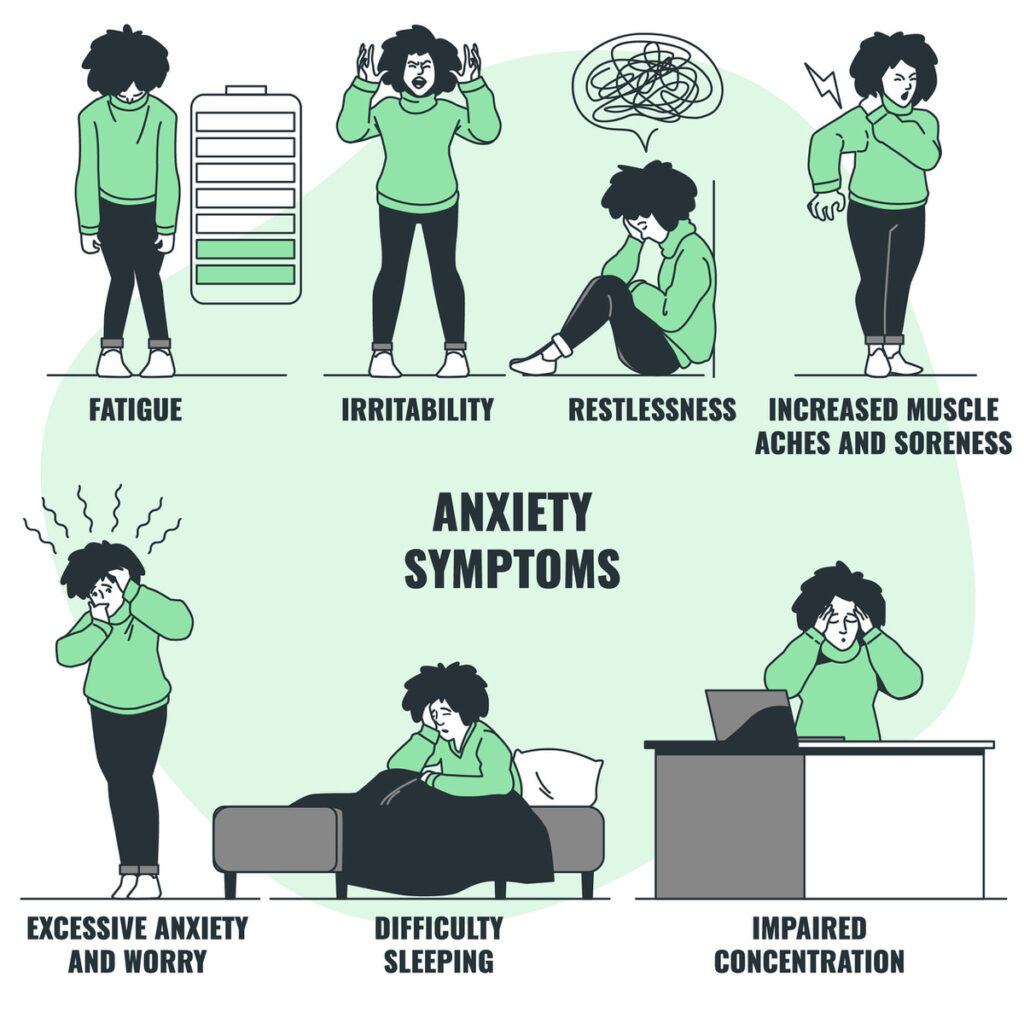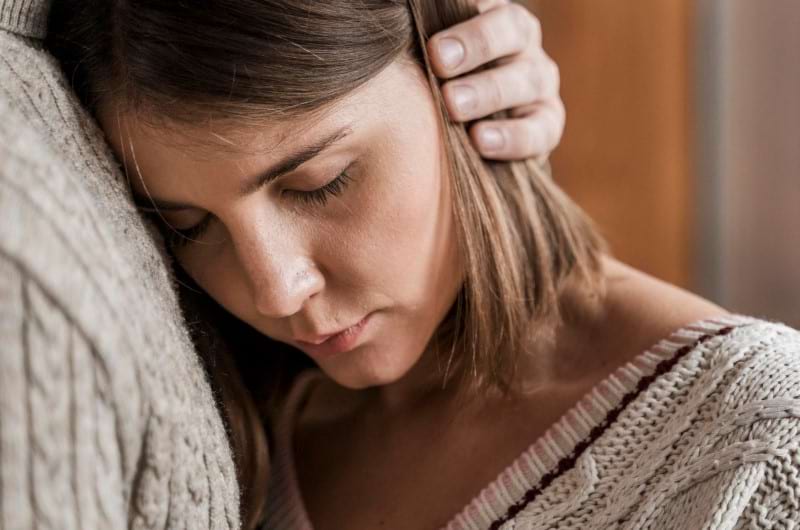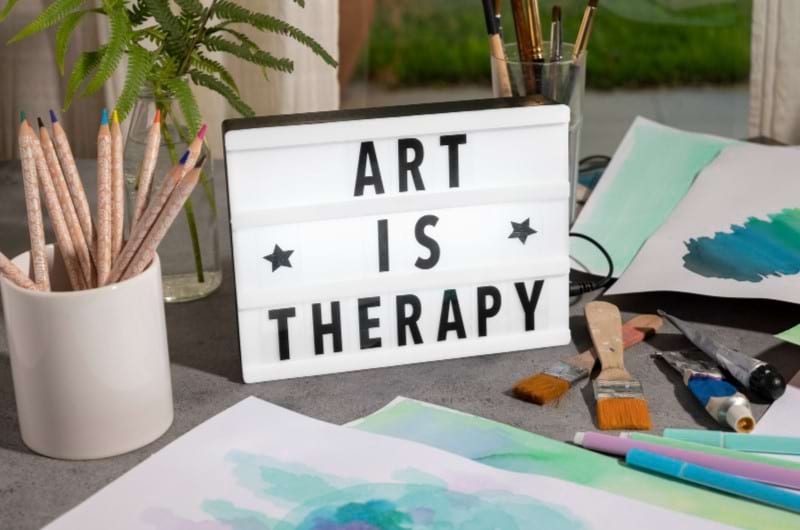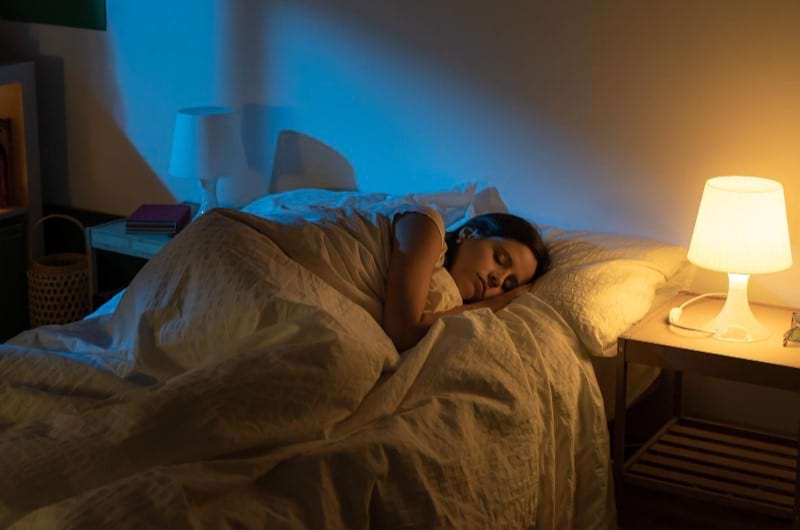Anxiety is a severe issue that has cognitive, behavioral, and physical manifestations. It could be due to changes in lifestyle, genetics, health issues, or exhaustive work pressure. There are different ways to manage anxiety including healthy eating, exercising, and adopting a lifestyle you enjoy. You can get therapy from professionals as well. Treat it before it takes a firm root in you.
People with anxiety disorders have increased by more than 55% since 1990. In 2023, an estimated 301 million people worldwide live with anxiety.
What is anxiety?
Picture yourself in a room or a banking hall full of people, feeling like you can’t breathe.
Amid this, your heart is pounding, and your hands are getting sweaty, all for no reason.
At that point, you’re anxious. And if that happens repeatedly, there’s a chance you’re suffering from anxiety.
Anxiety is a normal and often adaptive response to stress or a perceived threat.
It becomes a mental health concern when it becomes excessive, prolonged, and interferes significantly with a person’s daily life and well-being
Anxiety can be considered when you feel really worried, scared, or nervous about something (sometimes, even things that are yet to happen.)
In a typical case of anxiety, the cause of your sudden panic might not even be something you should be worried about.
It can happen anywhere, be it before a work situation or handling a large gathering of people you’re not used to.
Yet, it can make your heart beat fast, your body tense, and your mind keep thinking about things that make you uneasy.
Anxiety can make you overthink and develop a fear of things that do not count.
How does anxiety manifest?
Anxiety can manifest in various ways. There are emotional, cognitive, behavioral, and physical manifestations of anxiety.
Below are common manifestations of anxiety:
1. Cognitive manifestations
Cognitive manifestations of anxiety can include memory loss, self-criticism, excessive pessimism, lack of concentration, and self-hate.
2. Behavioral manifestations
Behavioral manifestations of anxiety can include procrastination, compulsion, social withdrawal, and even fidgeting; this can go as far as nail biting.
3. Physical manifestations

Physical manifestations of anxiety tend to be the most assuring symptoms. Some include stomach upset, shortness of breath, muscle tension, sweating, trembling, and shaking.
Physical anxiety symptoms include sleep disturbances like nightmares, restlessness, insomnia, and apnea.
What causes anxiety?
The reasons people get anxious are multifaceted. It differs per person.
However, some causes of anxiety are common, regardless of individuality, race, or gender.
Let’s look at a few:
1. Stress
A stressed person has a significantly higher chance of developing anxiety than anybody else.
You can easily get anxious when you have a lot in your head or too many problems to tackle.
Picture the situation as your brain gets overloaded with worries and then stirs up anxiety in you.
2. Trauma

Anxiety, in most cases, is a manifestation of trauma. Like stress, a person with many traumatizing encounters is prone to anxiety.
This is because if something really bad or scary happened to you in the past, it can leave you feeling anxious even when you’re safe now.
3. Significant changes
Significant changes in one’s life can result in anxiety.
Think of changes like first pregnancy, moving into a new neighborhood, getting a new job, starting a new school, and many other significant changes in a person’s life.
These changes can make you anxious because everything feels unfamiliar.
You’ll have to learn to adapt, and while in that process, anxiety might set in.
4. Health problems
Certain health challenges stir up anxiety.
Chronic illnesses like diabetes, autoimmune disorders, or neurological disorders like Parkinson’s disease or even cancer can result in anxiety.
Meanwhile, sleep disorders like insomnia or even narcolepsy and other common health problems can cause anxiety.
5. Genetics
Just like other disorders, anxiety can be hereditary.
Parents or other close relatives can pass it down. However, it is essential to understand that genetics is just a fraction of what can cause anxiety.
If you have parents with a history of anxiety, they can pass it down to you.
How do I manage my anxiety?
Anxiety can affect your career if not properly managed.
To live a healthy life, you must be on the lookout for common yet acute disorders that can ruin your career, physical and mental health, and even relationships.
Anxiety is one of those things. It is familiar yet destructive if mismanaged.
But how do you manage anxiety?
On the web or in health books, you’ll find a hundred ways to manage anxiety and become more comfortable with your life.
But, briefly, I’ll share five anxiety management strategies that have proven effective over time.
1. Therapy
You must seek the services of an experienced therapist who can help you manage your anxiety correctly.
Most people let anxiety eat them up because they want to go through it alone.
They do not want to speak to others about it. The first step to overcoming anxiety is talking to someone about it.
Although talking to people you trust about your anxiety struggle is appropriate, speaking to a professional about it is more advisable.

Sometimes, they might suggest other forms of therapies that could be better suited to your individual needs, such as art therapy.
Your friends and family will appreciate you opening up to them, but they will only help you a little because they are clueless.
However, when you meet a professional therapist, you’ll be put through the different things you can do to manage anxiety.
I might contradict experts here because opening up to your loved ones can sometimes take you out of the usual stress, which can become severe if left unaddressed.
It worked for me; whenever I went through such a phase, my family helped me, boosted me up, and taught me to be thankful for good things and adopt a positive lifestyle.
2. Regular exercise
Regular exercise can help you beat anxiety.
Several clinical studies have proven that regular exercise is one of the effective ways to manage anxiety.
An average person knows that exercise burns calories and keeps people fit. As a person struggling with anxiety, there’s more to exercise than that.
When you exercise, an enzyme called endorphin is released into your body.
This enzyme acts as a natural mood lifter. It shoots up your mood positively, and as a person battling with anxiety, that is the perfect natural remedy you need.
Exercise can also help you reduce muscle tension and many other physical disturbances that anxiety makes you suffer from.
3. Healthier diet
Veggies and fruits help manage anxiety more than caffeinated drinks and sugary food.
Aside from alcohol and caffeinated drinks, some foods are inappropriate for people struggling with anxiety.
If anxiety has been taking a toll on you for quite a while now, you should have less cured meat, fried food, trans fat, and food additives.
Even when you’re recording success in your anxiety management journey, your diet can hold you back.
That shows how important it is for you to maintain a healthy diet. It would be best to have more whole foods, lean proteins, fruits, and vegetables.
Lower your intake of alcohol, sugary food, and caffeinated drinks. It can only worsen your condition.
4. Adequate sleep
Adequate sleep can reduce your anxiety.
A recent study showed that workaholics tend to develop anxiety more than those with average work attitudes.
Workaholics overwork themselves. They work more and sleep less, which explains why they easily develop anxiety.

Overworking leads to stress, and stress is a significant cause of anxiety.
When you allocate enough time for rest and sleep, you’ll feel better at managing your anxiety.
5. Limit stimulants and alcohol
Taking less alcohol and caffeine will help you defeat anxiety
Many people resort to heavy drinking and smoking in the face of anxiety.
Many admit it’s like the perfect window to escape from the painful grip of anxiety.
But that can be likened to dashing out of a burning building into a forest fire.
Against common belief, alcohol and excessive caffeine intake only amplify the intensity of anxiety.
It does no good as far as anxiety management is concerned.
It is crucial to reduce the intake of alcohol, smoking, and caffeinated drinks to manage anxiety properly.
Recommended alternatives can be the use of natural teas and non-caffeinated beverages.
What should I do when I have anxiety but cannot pinpoint the cause?
Anxiety is caused by something or a group of things.
If you develop anxiety and don’t know why, you should understand that you can’t find the reason, not because it doesn’t exist but because you have no idea how to find it.
The primary step to take at this point is self-evaluation.
Assess yourself, note your actions, and watch out for the slightest changes.
That way, you can track the possible cause of your anxiety.
Also, you can always talk to your therapist. A good therapist will certainly know how to help you find the root of your anxiety.
If you are anxious, spend quality time with your loved ones, discuss the issues with them, and find a way out.
You can watch some movies or shows of interest. It sometimes helps to get out of social and general anxiety disorders.
You can play your favorite sports or spend quality time with enjoy your time. It always works for me.
FAQs
How and when do I know my anxiety symptoms are severe enough to seek medical attention?
The manifestations of anxiety come with symptoms. These mental or physical symptoms can affect many aspects of your life.
So, if your anxiety gets to a point where these manifestations affect your daily life, you must seek medical attention.
Can I be stressed or traumatized and not have anxiety?
Not everybody who is stressed is suffering from anxiety.
Neither does everybody who faces traumas develop anxiety.
That’s because stress and trauma are things humans can’t seem to do away with.
You can get stressed due to the nature of your work and or get traumatized by losing a loved one but not develop anxiety.
It all boils down to individual coping mechanisms.
However, it is essential to understand that stress is a significant cause of anxiety.
You can be stressed and not develop anxiety, but you must learn to manage your stress so it doesn’t develop into anxiety.
Does anxiety impact memory and focus?
Anxiety can make you highly uncomfortable with yourself and the people around you.
This is simply because it lashes you with so much discomfort that you struggle to stay sane.
Think of the consistent restlessness, intrusive thoughts, migraines, trembling, and excessive sweating.
All these can make you lose concentration at work and in your life. So, yes. Anxiety can impair your memory and affect your cognitive tasks.
What’s the difference between stress and anxiety?
First, see stress as a short-term phenomenon and anxiety as a long-term phenomenon.
The reactions caused by stress are short-lived, but anxiety isn’t just long-term but destructive.
So, stress can be caused by a little deviation from your normal daily routine or stretching yourself beyond what you should.
It can be fixed with a simple adjustment and rest.
But anxiety is that recurring feeling of worry and threats that do not exist. It can get to the point of interfering with your daily life.
References
- https://www.mind.org.uk/information-support/types-of-mental-health-problems/anxiety-and-panic-attacks/causes/
- https://www.mayoclinic.org/diseases-conditions/anxiety/symptoms-causes/syc-20350961
- https://www.medicalnewstoday.com/articles/323454#causes
- https://adaa.org/understanding-anxiety/facts-statistics
- https://www.nimh.nih.gov/health/statistics/any-anxiety-disorder
- https://www.mentalhealth.org.uk/explore-mental-health/statistics/anxiety-statistics
- https://www.healthline.com/health/mental-health/how-to-cope-with-anxiety
- https://www.healthline.com/health/stress-and-anxiety#:~:text=Stress%20is%20any%20demand%20placed,fear%2C%20worry%2C%20or%20unease.
- https://www.apa.org/topics/stress/anxiety-difference
- https://www.medicalnewstoday.com/articles/stress-vs-anxiety
- https://my.clevelandclinic.org/health/diseases/9536-anxiety-disorders
- https://medlineplus.gov/ency/article/003211.htm
- https://adaa.org/tips
- https://www.mayoclinichealthsystem.org/hometown-health/speaking-of-health/11-tips-for-coping-with-an-anxiety-disorder


